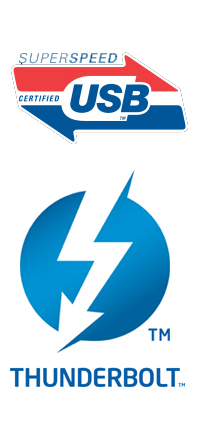USB 3.0 Weakened By HP’s Decision to Exit PC Market
Will the decision by HP, who following their acquisition of Compaq in 2002 for $25 billion became the worlds largest manufactures of PC’s, to withdraw from the PC market lead to a standards war between USB 3.0 and Thunderbolt™?
Up until now HP have claimed to be keeping a “watching brief” on Thunderbolt™ preferring instead to ship their new PC’s with USB 3.0 only. But, with the separation of their PC business and it’s likely sale, it’s anyone’s guess what strategy any new owner might adopt. HP’s declared plan moving forward is to “focus on its strategic priorities of cloud, solutions and software with an emphasis on enterprise, commercial and government markets” so it’s clearly not going to get involved in what looks like an interesting standard battle.
Where this gets interesting is that Thunderbolt™ was a joint development between Intel and Apple (so they’ll probably own some licensing rights) and it’s already being shipped on lots of new Apple products including the Macbook Pro, Macbook Air and iMac. We’re also beginning to see a number of first generation Thunderbolt storage peripherals hitting the market including Lacie’s Little Big Disk.
How long then before we see the first generation of Thunderbolt Flash Drives?
Thunderbolt is a new “High Speed” data transfer technology that has a theoretical data transfer speed of 10GB per second – this is twice the speed you can achieve with USB 3.0 so arguably USB 3.0 is redundant before it gets out of the starting blocks!
USB 3.0 products are backwards compatible with USB 2.0 but Thunderbolt is completely different; it uses different cables, different connectors and completely different protocol, so USB products, including USB flash drives will not work with Thunderbolt.
For users of Thunderbolt the advantages are easy to understand particularly when you consider that it supports the transfer of a Full High Definition film in around 30 seconds. This is great but no one wants a standards war.
Of course rumours that that Intel has so far failed to build support for USB 3.0 into any of its motherboard chipsets don’t help. If these rumours are true then where will this leave USB 3.0 and are we on the verge of seeing portable storage drives that use Thunderbolt technology?

